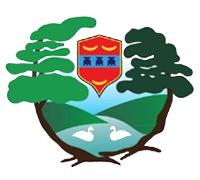Geography
Intent
Our learners will have a curiosity and fascination about our world and its people.
Implementation:
The Geography National Curriculum is primarily taught through an enquiry-based approach, that is carefully sequenced to be progressive across the school. This rigorous curriculum enables children to develop important subject knowledge, alongside key subject skills and as a result, develop as geographers.
Foundations are laid for geographical understanding in Early Years, where children have early geography embedded through our Knowledge and Understanding of the World curriculum, which is designed to promote exposure to locational, place, environmental knowledge as well as early geographical skills and fieldwork. For example, by working to expose children to directional and locational information and providing experiences that enable them to grasp their sense of place. We recognise the importance for children to secure the early geographical concepts and language by the end of the Reception Year.
From this, pupils are then ready to progress and build upon the knowledge and subject vocabulary that has already been acquired at EYFS.
Each unit asks the ‘big questions’ about topics, places, themes and issues. At Key Stage 1, these are mostly ‘who’, ‘what’, ‘when’, and ‘where’ but at Key stage 2 this broadens to ‘why’ and ‘how’ questions as pupils develop as geographers.
Locational and place knowledge, human and physical geography and skills and fieldwork are all embedded in each of the units.
The Geography Curriculum should be accessible for all, regardless of SEND or any disability. As closely as possible, we will ensure pupils will be able to access the knowledge, skills and concepts laid out in the Curriculum Document, appropriately adjusting the method of delivery to suit the needs of different groups of pupils, where required.
Impact:
The impact of this curriculum will be excellent progress in pupils geographical knowledge and pupils will develop their geographical skills through practical experiences. The design of the curriculum will enable children to know more and remember more as key topics and themes will be revisited throughout KS1, LKS2 and UKS2.
Assessment:
Assessment will take place at the end of each unit. Teachers will make a formative judgement based upon pupils work in the current unit, and the judgement will be based upon Locational and Place Knowledge, Human and Physical Geography and Geographical Skills and Fieldwork. These areas will take priority for assessment on a rolling cycle across the year as indicated in this curriculum document to ensure children area assessed in all areas.
At the end of the year, these judgements will inform teacher’s summative assessment in the subject.
